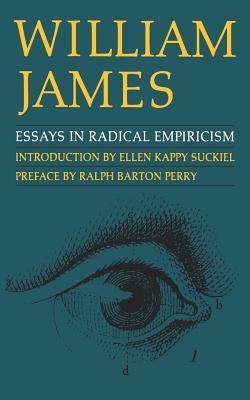Radical empiricism takes us into a "world of pure experience." In the essays, as introducer Ellen Kappy Suckiel notes, "James inquires into the metaphysically basic reality underlying the common-sense objects of our world. It is here that he defends his view that 'experience' is the sole and ultimate reality." The essays deal with the applications of this "pure" or "neutral" experience: the general problem of relations, the role of feeling in experience, the nature of truth. Horace M. Kallen observed: "The fundamental point of these essays is that the relations between things, holding them together or separating them, are at least as real as the things themselves . . . and that no hidden substrata are necessary to account for the clashes and coherences of the world."

Radical empiricism takes us into a "world of pure experience." In the essays, as introducer Ellen Kappy Suckiel notes, "James inquires into the metaphysically basic reality underlying the common-sense objects of our world. It is here that he defends his view that 'experience' is the sole and ultimate reality." The essays deal with the applications of this "pure" or "neutral" experience: the general problem of relations, the role of feeling in experience, the nature of truth. Horace M. Kallen observed: "The fundamental point of these essays is that the relations between things, holding them together or separating them, are at least as real as the things themselves . . . and that no hidden substrata are necessary to account for the clashes and coherences of the world."